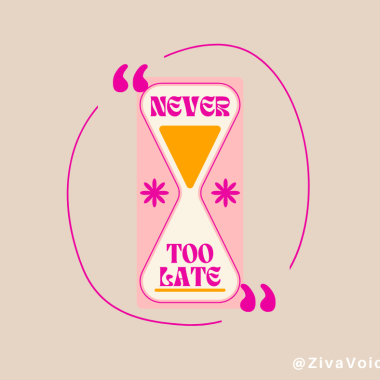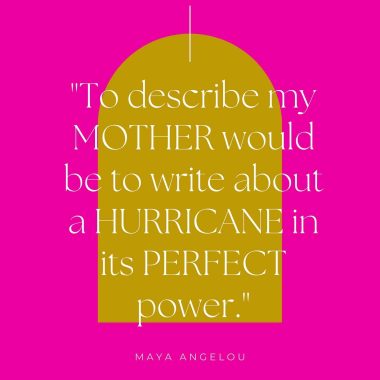by: Courtney Easterling, J.D.
Table of Contents
Imagine you are at a professional dinner party—you know many of the guests but they are colleagues, not friends. Now imagine the food is being served and you have a dietary restriction that was not considered—something that you must avoid for health reasons. Let’s set the gathering somewhere where food and hospitality are tightly intertwined (like the Southern US where I live!). What is your response?
Do you attempt to discreetly address the concern with the individual serving your food? Do you avoid saying anything and merely do not eat? Do you try to pick around the entree and find something you may be able to consume?
I have experienced this scenario too many times to count. If I inadvertently eat something with my problematic ingredients, I will experience a flare of my chronic illness, including unpleasant and painful physical symptoms for days or weeks. And yet, even knowing the potentially severe consequences to ingesting something my body cannot handle, I still find myself uncomfortable when having to address in a public setting. I do not want to offend anyone or create an inconvenience. Inevitably, the host will bend over backwards to try to find a solution but I don’t want to create a fuss.
I acknowledge that I have been conditioned by society to put the needs of others before my own—and this conflict of needs comes into focus at almost every social gathering, for me.
Why is boundary-setting so difficult?
I intentionally opened with the dietary restriction scenario because people have strangely strong opinions on what others choose to eat (or not eat). I have lived with my chronic illness for two and a half decades and found the food connection sixteen years ago. However, I still run into individuals that are skeptical of my lived experience.
Boundaries would be easier if the other party understood or believed your reasoning—but very often that understanding is lacking. Sometimes, we are not completely invested in our own boundary, making it more difficult to set it with clarity and stick with it. Boundary setting can also be difficult for women and marginalized groups who have been expected or conditioned to not “create a scene” or disrupt the status quo.
Why is boundary-setting critical to personal well being?
I intentionally opened with the dietary restriction scenario because people have strangely strong opinions on what others choose to eat (or not eat). I have lived with my chronic illness for two and a half decades and found the food connection sixteen years ago. However, I still run into individuals that are skeptical of my lived experience.
Boundaries would be easier if the other party understood or believed your reasoning—but very often that understanding is lacking. Sometimes, we are not completely invested in our own boundary, making it more difficult to set it with clarity and stick with it.
Boundary setting can also be difficult for women and marginalized groups who have been expected or conditioned to not “create a scene” or disrupt the status quo.
Why is boundary-setting critical to personal well being?
In the dinner scenario, the connection between boundary setting and well-being is fairly clear: if I eat certain items, I will feel physically ill (and, in turn, emotionally drained). Many examples are not as immediately connected. For example, have you experienced a season where you took on everything—saying “yes” to everything in your profession and your personal life—until it all became too much? Maybe less drastically, have you had weeks where you have overbooked your time with things for others and cannot wait until the weekend to crawl into bed and recover? Saying “yes” to each of these items at the time might have felt appropriate and achievable—but the collective of saying “yes” to everything will inevitably reach a point of overwhelm.
Maybe you have thought to yourself that you need to “make time for [insert self-care activity of choice]”? But—how does one make time? There are only 24 hours in a day—about eight of which are potentially allocated to sleep.
Making time for wellness can often feel like just one more chore to add to the never-ending to-do list to be accomplished in the remaining sixteen hours. You may find yourself doing something because you feel like you are supposed to and want to simply check it off the list.
Instead, what if we aim to create boundaries around our time and define a few non-negotiables for protecting your well-being. When I reframed the idea of self-care into a boundary I needed to protect, I felt more empowered. It prompted me to think more concretely about practices I needed to feel well—physically, mentally, emotionally, and spiritually.
“No,” is a complete sentence…and other practical tips.
As a lawyer that used to live by the billable hour and divide my day into six-minute increments, I appreciated the efficiency of yoga. My time on the mat gives me physical, mental, emotional, and spiritual benefits that help set a positive tone to my day. Although my career has shifted in recent years, I am still a planner and live by my calendar. For me, creating a recurring appointment for the yoga classes I enjoy (or the time for a personal practice at home) helps me protect that boundary.
When planning, I generally schedule around my yoga appointments like any other obligation on my calendar. I do not feel the need to provide an explanation to others as to why I am unavailable; I simply explain that I am not and offer an alternative time. No is, in fact, a complete sentence. On the rare occasions that I do need to schedule something during my yoga, I immediately identify a place to reschedule that time for myself.
While I do believe yoga is for everyone, you may disagree and I will enthusiastically respect your boundary. It is important, though, that you take the time to find what you need to feel well, including what boundaries you need to create.
Here are some prompts to get you thinking:
- How do you define personal well-being? What current activities or habits support your well-being?
- Are there any current obligations in your life that are not supporting your well-being? Do you have the ability to step away from those obligations? If not, is there a way you can set some boundaries that minimize the impact the situation has on your well-being?
- If you have an hour free of obligation, what activity could you engage in to bring you joy? What if you had only thirty minutes? Fifteen minutes? Five minutes? Keep a running list of these activities and when you have a spontaneous moment of time without other obligations you can quickly dip into this bank for a little boost.
- Is there a new activity or habit you want to incorporate into your daily or weekly routine? If so, outline how you will do so. (For example, “I will journal for three minutes a day at least three times a week about what I am grateful for.”)
- Identify one of the above activities that is a necessity for your well-being. Make a plan for intentionally incorporating it into your week this week.
As you work through these prompts, be sure to acknowledge all of the work you are already doing. Take the insights that serve you and leave the rest—no explanation needed.
About Courtney

Courtney is a lawyer and a registered yoga teacher, writing and speaking regularly across her home state of Kentucky and nationally on a variety of legal and well-being issues. Her yoga practice is focused on accessible, functional movement to holistically support her students’ well-being.
https://www.linkedin.com/in/courtney-risk-easterling-84721592











